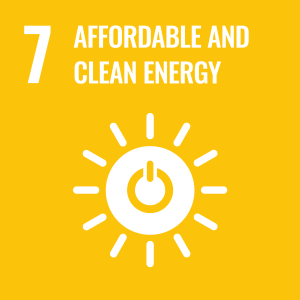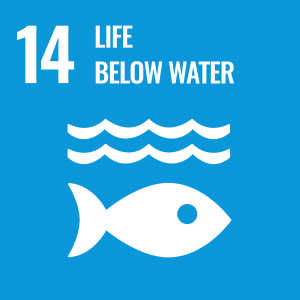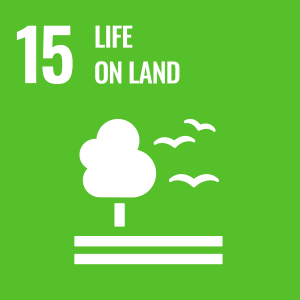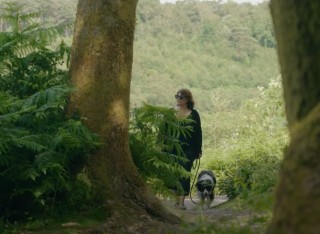
Dr Thomas Roberts
About
Biography
I am a founding Co-Director of the University's Institute for Sustainability, and Senior Lecturer in Environmental Sociology, in the Department of Sociology. My research focuses on the relationship between people and the environment. More specifically I am interested in the impact of climate change on everyday life, healthcare and crime; public perceptions and understanding of environmental change and new low carbon technologies; the challenges associated with transitioning to a low carbon society, particularly in relation to work and skills; the environmental impact of consumption and waste disposal practices. My research has been funded by The British Council; The British Academy; Public Health England; The Economic and Social Research Council; The Engineering and Physical Sciences Research Council.
Areas of specialism
University roles and responsibilities
- Co-Director of Institute for Sustainability (Faculty of Arts and Social Sciences)
- Academic Integrity Officer for Department of Sociology
My qualifications
Affiliations and memberships
News
ResearchResearch projects
GP4Streets (DIY Greening Prescription for Climate Adaptation in Urban Streets) is an innovative research project funded by UK Research and Innovation (UKRI) under the Maximising UK Adaptation to Climate Change initiative. Backed by £2M in funding over 30 months, the project aims to transform urban climate adaptation strategies.
2025–2026: NIHR Co‑I — THERMOCARE: Heat resilience in hospitalsMultidisciplinary evaluation of workforce-centred heat mitigation strategies in the UK hospitals that are equitable, sustainable, and scalable
2025: Surrey Hills National Landscape PI — Love Dogs Love NatureThe Love Dogs, Love Nature project, run with the University of Surrey, researches how dog walking affects the Surrey Hills National Landscape. Using literature reviews, site observations, and surveys, it explores dog walkers’ attitudes, habitual behaviours, and responses to signage and dog-walking codes. The study assesses impacts on sensitive habitats, livestock, and popular visitor sites, and tests assumptions about owners’ care for dogs and nature. It will propose behaviour-change strategies, including sensory dog zones, fencing, signage, and monitoring methods, alongside evaluating tools such as Community Protection Warnings and PSPOs. Findings will inform a campaign and design toolkit for 2025–26
2023-2025: Leverhulme Research Project Grant Parents', news use, risks and crises in datafied societiesMy role in this project is to explore the impact of parental news consuption related to the environment and climate change gsgb
2024-2025 UKHSA PI — Weather‑Health Alert System EvaluationThe project evaluated user insights to assess whether the redesigned alerts and platform meets user needs, it identified information gaps, and maped how alerts travel from UKHSA to end users and influence action.
2022–2024: British Academy PI — Recreational waste collectionThis project explores why recreational waste collection—once seen as stigmatised “dirty work”—is rapidly growing as a leisure activity. Using action research and interviews with litter pickers, ploggers, mountaineers and scuba divers, it examines motivations, emotional responses to the climate crisis, and how waste-removal practices evolve and spill over into everyday consumption and disposal habits. The study aims to explain how new social practices form and how sustainable behaviours can be encouraged.
Research projects
GP4Streets (DIY Greening Prescription for Climate Adaptation in Urban Streets) is an innovative research project funded by UK Research and Innovation (UKRI) under the Maximising UK Adaptation to Climate Change initiative. Backed by £2M in funding over 30 months, the project aims to transform urban climate adaptation strategies.
Multidisciplinary evaluation of workforce-centred heat mitigation strategies in the UK hospitals that are equitable, sustainable, and scalable
The Love Dogs, Love Nature project, run with the University of Surrey, researches how dog walking affects the Surrey Hills National Landscape. Using literature reviews, site observations, and surveys, it explores dog walkers’ attitudes, habitual behaviours, and responses to signage and dog-walking codes. The study assesses impacts on sensitive habitats, livestock, and popular visitor sites, and tests assumptions about owners’ care for dogs and nature. It will propose behaviour-change strategies, including sensory dog zones, fencing, signage, and monitoring methods, alongside evaluating tools such as Community Protection Warnings and PSPOs. Findings will inform a campaign and design toolkit for 2025–26
My role in this project is to explore the impact of parental news consuption related to the environment and climate change gsgb
The project evaluated user insights to assess whether the redesigned alerts and platform meets user needs, it identified information gaps, and maped how alerts travel from UKHSA to end users and influence action.
This project explores why recreational waste collection—once seen as stigmatised “dirty work”—is rapidly growing as a leisure activity. Using action research and interviews with litter pickers, ploggers, mountaineers and scuba divers, it examines motivations, emotional responses to the climate crisis, and how waste-removal practices evolve and spill over into everyday consumption and disposal habits. The study aims to explain how new social practices form and how sustainable behaviours can be encouraged.
Supervision
Postgraduate research supervision
Potential PhD Students: I am happy to consider PhD proposals in various areas related to the relationship between the environment and society. Specific areas of interest include: The impact of climate change on everyday life, healthcare and crime; public perceptions and understanding of environmental change and new low carbon technologies; the challenges associated with transitioning to a low carbon society, particularly in relation to work and skills; the environmental impact of consumption and waste disposal practices.
Teaching
SOC1030: Media, Communication and Society
SOC2082: Exploring Environmental Crime
SOCM006: Qualitative Field Methods
Dissertation Supervision
Sustainable development goals
My research interests are related to the following:







Publications
Household- and street-level greening is a key strategy for enhancing urban resilience to climate change, yet gaps persist in understanding their environmental and socio-ecological performance. To address this gap, this study aims to identify the most common household and street-scale green infrastructure (GI) types in the UK, develop a structured scoring framework for evaluating their environmental and socio-ecological performance, and determine which configurations deliver the greatest multifunctional benefits. We surveyed 112 cities and towns in England and Wales, documenting a total of over 900 sites across front gardens, back gardens, and streets. Common types of greenery included grass, hedges, container plants, street trees, and low shrubs. A five-level scoring framework was developed to assess these configurations' environmental and socio-ecological performance across five impact dimensions: air quality, cooling, flood mitigation, biodiversity, and health and wellbeing. The framework was informed by 991 peer-reviewed studies (2015–2025), expert judgement, and remote visual assessments. The results reveal a clear performance gap between single-element and multi-element configurations. At the household level, combinations of hedges, grass, and trees scored highest in pollutant reduction, cooling, and surface water management. Adding container plants or vertical green screens further improved biodiversity and wellbeing, especially in front gardens. At the street level, the highest scores were associated with configurations that included street trees, roadside grass, hedges, and shrubs. Pocket gardens further enhanced socio-ecological performance through vegetation diversity and vertical layering. These findings underscore the role of plant diversity and spatial composition in maximising the multifunctional benefits of household and street-scale greenery and emphasise that collectively these provide the most benefit when planned as a multifunctional network of GI. The study offers a replicable, evidence-based reference to support DIY and community greening and supports equity and resilience in UK residential areas.
In recent years, there has been a significant shift from threshold-based to impact-based weather alerting systems. This paper evaluates the impact of this transition within the Weather-Health Alerting (WHA) system in England, which is used to notify the health and social care sector about adverse weather events. The evaluation was conducted after the system's first year of operation to assess its effectiveness in supporting emergency planners and frontline health and social care staff. Findings show that the shift to an impact-based system has been broadly successful. Stakeholders reported that the most valuable component of the new system is the information provided on expected impacts, which has improved the relevance and utility of the alerts. However, the evaluation also identified several minor concerns, particularly around the clarity of distinctions between alert levels and the volume of information included in alerts. These issues may warrant further refinement in future iterations of the system. Overall, this paper situates the findings within the wider context of climate adaptation and public health resilience, highlighting the essential role of clear, actionable alerting systems in mitigating the health impacts of extreme weather.
While extensive research has documented the environmental benefits of green infrastructure (GI), do-it-yourself (DIY) approaches that empower individuals and communities to implement small-scale green solutions have received limited attention despite their potential to democratise urban greening and foster community engagement. This study aims to systematically characterise DIY GI implementation across UK cities and analyse the costs and benefits of GI establishment. We conducted mapping of GI configurations across major UK cities using Google street view imagery and field observations, identifying 30 street-scale and 50 household-scale GI scenarios, complemented by an extensive literature review examining small-scale GI interventions. This focus on household and streetside GI provides insights into small-scale interventions, although larger spaces such as urban forests, parks and grasslands also provide benefits, they are beyond the scope of this study. A five-level scoring framework was developed for costs, space requirements, expertise levels, maintenance demands, and cost-benefits to design DIY guidance cards for GI scenarios. Our findings reveal diversity in GI adoption, with street trees and basic grass combinations dominating street-scale implementations (20.8 % each), while household-scale approaches show remarkable variety ranging from simple grass-only configurations (18.5 %) to complex multi-feature systems. The analysis identified a linear relationship between higher GI establishment costs and increased maintenance costs, despite greater variation in the latter. The detailed DIY score reveals that household-scale combinations have greater variation in cost and higher potential benefits compared with street-scale interventions, which remain clustered at lower scores despite higher space demands. The DIY framework enables local authorities and households to make informed GI decisions, addressing key implementation barriers. Aligned with UK policies for GI, the current framework can be further enhanced through interactive platforms, planting schemes, and added metrics for biodiversity and climate adaptation.
The rational choice framework is commonly used in many energy demand models and energy economic policy models. However, the notion of reasoned decision-making underpinning the rational actor models is less useful to explain the dynamics of routine household activities (e.g., cooking, showering, heating, etc.) which result in energy use. An alternative body of work collectively referred to as social practice theories offers a more practical explanation of routines. It is also argued that practices, i.e. the routine activities that people do in the service of normal everyday living, is at the centre of social change, and hence should be the focus of interventions concerned with demand reduction. One of the main criticisms of social practice theories, however, is that the concepts proposed are high-level and abstract and hence difficult to apply to real-world problems. Most existing practice-centric models are also abstract implementations. To address this gap, in this paper, we present a concrete, empirically-based practice-centric agent-based model to simulate the dynamics of household heating practices. We also use the model to explore consumer response to a simulated price-based demand response scheme. We show how a practice-centric approach leads to a more realistic understanding of the energy use patterns of households by revealing the underlying contexts of consumption. The overall motivation is that by gaining insight into the trajectories of unsustainable energy consuming practices, it might be possible to propose alternative pathways that allow more sustainable practices to take hold.
Extreme weather alerting systems are one of the central tools utilised in adapting to changing weather patterns resulting from climate change. This paper evaluates the effectiveness of the current alerting systems for hot and cold weather used in England to notify the health and social care sector of upcoming extreme weather events. We consider the views of stakeholders on the current system and explore their perspectives on the proposal to move towards an impact-based system. The paper concludes that while the current system is an effective tool, stakeholders feel they need to draw on additional material to assist with the development of an appropriate response. We also highlight that many stakeholders are concerned about the potential for creating alert fatigue due to a lack of clarity of the geographical area impact of some of the alerts. Consequently, there was a high level of support from stakeholders for the move towards an impact-focused system.
The deployment of low-carbon energy supply technologies worldwide has sparked a debate about how to balance local environmental protection and our need for reliable low carbon energy. This books brings together ten years of research conducted by the Tyndall Centre for Climate Change Research and uses a range of case studies from carbon capture and storage to on-shore wind farms to explore the complex nature of disputes between a wide variety of stakeholder groups. Topics covered include: •the importance of context •the relationship between risk and trust •sense of place •role of the media An invaluable resource for researchers and readers in local or national government, industry or community groups who wish to deepen their understanding of controversy around low carbon technology and how to overcome it.
The unbridled consumption of clothing threatens the environment. A discussion is developing around the adoption of new materials and economic models to reduce the impacts of clothing production and use. We discuss these emergent technologies in the wider historical setting of the Anthropocene. The history of human-environmental interactions is interwoven with the development of international garment economies. This article provides an account of how changes in clothing manufacturing and consumption patterns have affected environmental systems, focusing on laundry practices in Britain. We draw on closed-loop recycling to discuss how ideas from clothing businesses privilege the status quo and technological change. Optimistic solutions to fashion and sustainability challenges are an example of mechanisms that are responding to a utopian eco-modernist argument that human systems can adapt and prosper in a changing world. Such flawed solutions hide from view more radical visions to transform the relationships among fashion, technology, and the environment.
There are competing visions for what future low-carbon energy systems might look like. However, it is likely that consumers will be more actively involved in managing their energy use. Consequently, there is likely to be some disruption to the current rhythm of everyday domestic social practices. This paper considers what we can learn from people who already take a more active role in managing their energy supply, with the aim of identifying transferable lessons that could be applied to future energy system decentralization. We compare two case studies focused on people with different levels of grid connectivity - people living off-grid on narrowboats and living in semi-grid connected houses in rural Norfolk. We find that where people had constraints on their energy use, they responded in three main ways. First, they diversified their energy supplies, including adopting traditional fuels such as coal and wood. Second, people planned, monitored and shifted their energy use, responding in ways favorable to micro-generation and demand-side response. Third, people curtailed energy use. We propose that UK households may respond in similar ways to decentralized energy. Finally we consider the implications of our findings for future energy policy aimed at decentralizing energy production and supply.
Fostering local community tolerance for endangered carnivores, such as tigers (Panthera tigris), is a core component of many conservation strategies. Identification of antecedents of tolerance will facilitate the development of effective tolerance-building conservation action and secure local community support for, and involvement in, conservation initiatives. We use a stated preference approach for measuring tolerance, based on the ‘Wildlife Stakeholder Acceptance Capacity’ concept, to explore villagers’ tolerance levels for tigers in the Bangladesh Sundarbans, an area where, at the time of the research, human-tiger conflict was severe. We apply structural equation modeling to test an a priori defined theoretical model of tolerance and identify the experiential and psychological basis of tolerance in this community. Our results indicate that beliefs about tigers and about the perceived current tiger population trend are predictors of tolerance for tigers. Positive beliefs about tigers and a belief that the tiger population is not currently increasing are both associated with greater stated tolerance for the species. Contrary to commonly-held notions, negative experiences with tigers do not directly affect tolerance levels; instead, their effect is mediated by villagers’ beliefs about tigers and risk perceptions concerning human-tiger conflict incidents. These findings highlight a need to explore and understand the socio-psychological factors that encourage tolerance towards endangered species. Our research also demonstrates the applicability of this approach to tolerance research to a wide range of socio-economic and cultural contexts and reveals its capacity to enhance carnivore conservation efforts worldwide.
If targets to reduce greenhouse gas emissions and thereby tackle climate change are to be achieved, it will be necessary to reduce both embodied energy costs (e.g. in terms of producing and manufacturing the products and services that society consumes) and operational energy costs. Reducing the number of purchases that people regret could be a first step in changing the overall dynamic of consumption patterns. This research looks at some potentially adverse effects of consumption on well-being (e.g. negative emotions), applying social practice theory to give insights into why people make purchases that they feel negatively about. This paper draws from: (i) findings of a national survey of over 2000 respondents which found that 53% of adults had reported regretting purchasing an electrical device at some point, and that 23% regretted making such a purchase within the past year; and (ii) a series of walking interviews around people's homes that provide detailed insights into the nature and extent of regretted purchases of electrical goods (e.g. resentment at built-in obsolescence, frustration at the pace of technological change). By combining the qualitative and quantitative data, we develop a typology of regretted consumption and explore the underlying factors that lead to such purchases. The paper concludes with a discussion of the policy implications of this research.
At present, there is little guidance on how to communicate the dangers relating to hot weather events and on how to better prepare for them. Social responses to hot weather risks need to be a priority as populations around the world become more exposed to these under a changing climate. In this commentary, we argue that policy interventions focused on improving resilience to hot weather need to be more closely aligned with broader sustainability challenges and more effectively incorporate communication, behaviour, and social insights. With a particular focus on the UK, we highlight the risks of not taking these into account and outline ways in which policy-making on hot weather events could be improved, by drawing on international best practice and supporting decision-making within a range of relevant institutions across the health, transport and housing sectors.
We use an agent-based model to help to refine and clarify social practice theory, wherein the focus is neither on individuals nor on any form of societal totality, but on the repeated performances of practices ordered across space and time. The recursive relationship between social practices and practitioners (individuals performing practices) is strongly emphasised in social practice theory. We intend to have this recursive relationship unfold dynamically in a model where practitioners and social practices are both considered as agents. Model conceptualisation is based on the principle of structuration theory—the focus is neither on micro causing macro nor on macro influencing micro, but on the duality between structure (macro) and agency (micro). In our case, we conceptualise the duality between practitioners and practices based on theoretical insights from social practices literature; where information is unclear or insufficient, we make systematic assumptions and account for these.
Responding to the increased interest in addressing organisational sustainability issues using behaviour change strategies, this paper aims to propose a methodology for doing so from a different perspective – namely, sociology and social practice theory. Firstly, the background of behaviour change approaches and practice theory are discussed. Then a methodology for conducting a pro-environmental organisational change project is proposed. The methodology involves five key elements: detailed analysis of context, outlining a theoretical framework, establishing project boundaries, acknowledging connectivity of practices and choosing data collection methods. We illustrate the application of methodology by using examples of everyday consumables, energy and waste in a hospital trust in the South East of England. This approach has been effective for analysing routine and inconspicuous consumption within an organisation, as it considers individual attitudes and motivations as well as the structural and habitual nature of communities of practices. It allows researchers and managers to understand workplace consumption issues from several perspectives and identify the best angle from which to approach potential resolutions.







